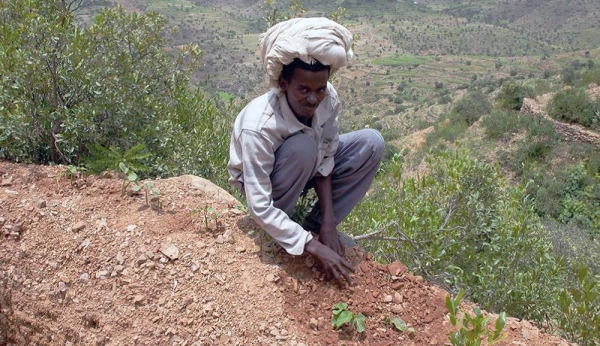
WASHINGTON — The World Bank on Friday announced a new Climate Change Action Plan aimed at helping developing countries achieve measurable reductions in greenhouse gas emissions and pledging to mobilize large-scale resources to aid the transition out of coal, Reuters reported.
The bank’s new Climate Change Action Plan which will increase climate finance, focus on climate results and impact, improve and expand climate diagnostics and reduce emissions and climate vulnerabilities in key systems.
World Bank President David Malpass said key elements of the plan had been presented to the bank's board on Thursday and underscored the need to take urgent action. He said the bank had provided $83 billion in climate finance over the past five years, peaking at $21.4 billion in 2020, but the new plan would see those levels increase.
"I am pleased to announce that we presented to our Board the key elements of the World Bank Group’s new Climate Change Action Plan. Our collective responses to climate change, poverty and inequality are defining choices of our age.
“The World Bank Group is already the largest multilateral provider of climate finance for developing countries, and has increased financing to record levels over the past two years. To deliver on our twin goals of reducing poverty and boosting shared prosperity, it is critical that the World Bank Group help countries fully integrate climate and development.
“It is also important we help countries maximize the impact of climate finance, with measurable improvements in livelihoods through adaptation, and measurable reductions in greenhouse gas emissions through mitigation,” Malpass said in a statement.
The new plan, first reported by Reuters Wednesday, commits to making financing decisions in line with efforts to limit global warming, but stops short of promising to halt funding of fossil fuels, as many campaigners had urged.
“Our collective responses to climate change, poverty and inequality are defining choices of our age,” Malpass said in a statement, underscoring the need to "help countries maximize the impact of climate finance, with measurable improvements in livelihoods through adaptation, and measurable reductions in greenhouse gas emissions through mitigation."
To achieve these goals, Malpass said 35 percent of World Bank Group financing will have climate co-benefits, on average, over the next five years; and 50 percent of World Bank climate financing will support adaptation and resilience. This represents a big step up from the 26 percent achieved on average in FY16-20 and an even bigger step up in dollar terms as the Bank Group’s total financing has also expanded.
Focusing on climate results and impact: We will focus on measuring results and achieving impact, through a greater focus on greenhouse gas emissions reduction, adaptation and resilience goals, supported by new metrics.
Improving and expanding climate diagnostics: We will build a strong analytical base at the global and country level, including introducing new Country Climate and Development Reports that will support preparation and implementation of Nationally Determined Contributions (NDCs) and Long-Term Strategies (LTSs), and which will feed in to all WBG Country Partnership Frameworks.
Reducing emissions and climate vulnerabilities in key systems: We will support transformative investments in key systems that contribute the most to emissions and have the greatest climate vulnerabilities: for example, energy, food systems, transport, and manufacturing.
Aligning our financing flows with the goals of the Paris Agreement: The Bank Group is committed to aligning financing flows with the objectives of the Paris Agreement. For the World Bank, we plan to align all new operations by July 1, 2023. For the International Finance Corporation (IFC) and the Multilateral Investment Guarantee Agency (MIGA), 85 percent of new operations will be aligned by July 1, 2023 and 100 percent of these by July 1, 2025.
The World Bank Group has been instrumental in helping countries address climate change: including delivering over $83 billion in climate finance over the past five years and reaching the highest level in a single year in 2020 at $21.4 billion. Through this plan, we will be doing more in terms of both dollars and impact.
''Today, the world has a historic opportunity and necessity to change course — to overcome the rising dangers of hunger, social division, conflict, violence and climate change. The World Bank Group will work with all stakeholders to address these challenges head on and support our clients to unlock the benefits of green, resilient and inclusive development," he added. — Agencies